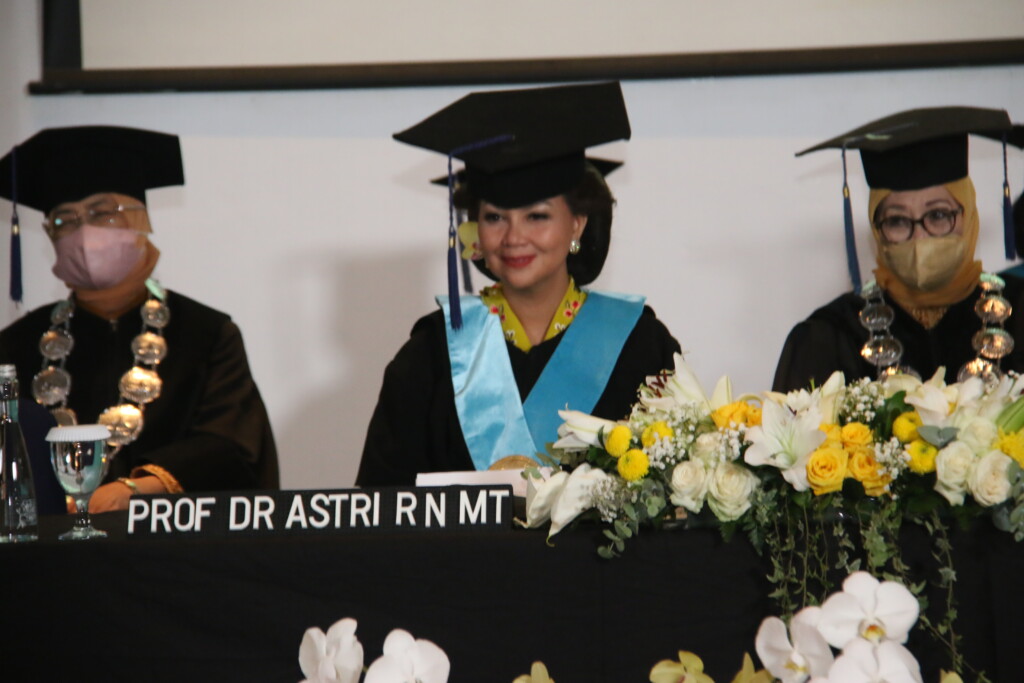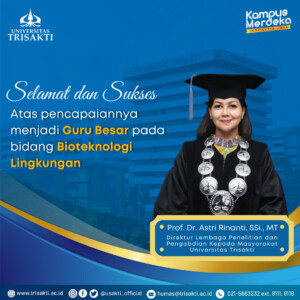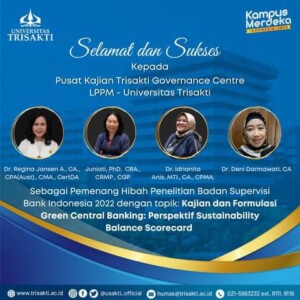Berita

Trisakti Inaugurates the 64th Professor
RECTOR of Universitas Trisakti Prof. Kadarsah Suryadi, DEA inaugurated Prof. Astri Rinanti as a Professor in Environmental Engineering of the Faculty of Architecture, Landscape, and Environmental Engineering. The inauguration was held as an open assembly at Universitas Trisakti campus, in Jakarta, yesterday. Prof. Rinanti was the 64th professor inaugurated by Universitas Trisakti. This was such a great momentum to be grateful for, through the addition of a professor who is an expert in her field. “Hopefully with the inauguration of Prof. Astri Rinanti as a Professor of Environmental Engineering at the Faculty of Landscape Architecture and Environmental Engineering of Universitas Trisakti, the roles, and functions of the universities will be more advanced today,” said the Rector.
In her speech titled “The Role of Biotechnology in Environmental Engineering to Support Sustainable Development”, Prof. Rinanti highlighted the importance of biotechnology to restore (remediate) polluted environment, considering that physical and chemical methods were likely causing secondary contamination.
“Environmental biotechnology makes use of the enzymatic activities of the organisms, particularly the microbes such as bacteria, fungi, and microalgae to decrease the concentration of the pollutant and even eliminate it from the environment by converting it into non-toxic compounds,” said Prof. Rinanti.
Prof. Rinanti asserted that this method could manage several environmental pollution problems, for instance, the pollution in an agricultural area that was caused by various types of pesticides, or the pollution of cyanide in the mining area that could be eliminated through the biological method. The method worked as well to eliminate pollution caused by oil spill problems both on the land and in the sea. During the bioremediation process of crude oil, a consortium of bacteria and fungi work together to degrade the crude oil.
It is also possible to eliminate other types of pollution, for instance, the accumulation of microplastics, using biotechnology. Biotechnology-based research can also tackle the greenhouse gas problems by using microalgae as the main agent. “The future challenge is in how to implement the results of lab research into a broader scale” she added. (Van/H-2)
Source: EPAPER.MEDIAINDONESIA.COM – NO.14967/TAHUN KE-53 | JUMAT, 9 SEPTEMBER 2022



